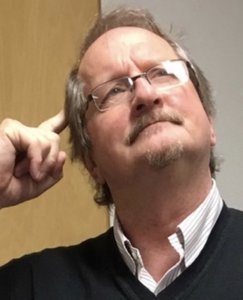
International Conference 2019
Featured Session
Key Concepts in the Neuroscience of Language Learning
.
After almost a century of wandering in the dark, neuroscience is finally shining a light on how the brain learns language. Every month is bringing new discoveries, and many are utterly unexpected. To name just a few, we have now discovered (a) how in just a few thousand years we could grow a brain that can read, (b) why that boy who “doesn’t get it” might be the smartest, (c) how emotion is at the root of Everything (capital intended), and (d) how a relatively new theory, Predictive Processing, is giving us a completely different picture of how the brain works. Language and learning are two key processes of the brain, so every language teacher needs to know how these work in order to be an effective teacher. Avoiding complicated jargon, we will examine key concepts in the neuroscience of language learning and try to connect them to good teaching practices.
____________________
Invited Second Session
10 Principles of TBLT Task Design: Author Insights
.
I have spent most of my life designing Task-Based Language Teaching (TBLT) tasks for two reasons: First, I write textbooks for Cambridge, Pearson, Cengage, Macmillan, and other publishers, all using TBLT; and second, I am a terrible language learner. I write for people like me who hate traditional language teaching methods and need something to engage them. TBLT is perfect for this. So, let me propose 10 principles of TBLT design that come from the literature, neuroscience, and tricks I’ve learned along the way. The principles provide guidance in engaging students, controlling language targets, and solving typical class management problems, such as keeping learners in the target language. We’ll try some activities too, including an information-gap mystery that will almost certainly result in a noisy room.
____________________
Biographical Sketch
.
Popular speaker and writer, Curtis Kelly (EdD), has spent his life developing learner-centered materials for “3L” students: students with low ability, low confidence, and low motivation. In pursuit of his life mission, “to relieve the suffering of the classroom,” he’s written over thirty textbooks full of engaging activities, including Active Skills for Communication (Cengage), Writing from Within (Cambridge), and Significant Scribbles (Longman). He also writes a column on neuroscience for KOTESOL’s The English Connection (TEC). He is a professor at Kansai University in Osaka and a teaching fellow in the Harvard course, The Neuroscience of Learning. He is one of the founders of the FAB conferences, the JALT BRAIN SIG, and producer of the MindBrainEd Think Tanks, a magazine that connects brain sciences to language teaching.
____________________
Curtis Kelly Media Online
.
Article: Neuroscience at the Heart of Teaching Presentation
(The English Connection, Autumn 2019)
PDF available at bottom of page.
MindBrainEd Think Tanks (Free online magazine)
https://sites.google.com/view/jalt-mind-brain-and-education/publications
Pecha Kucha at KOTESOL 2013: “I Deal in Drugs”
https://www.youtube.com/watch?v=bCBR89vZa64
Workshop at KOTESOL 2015: Inquiry-Based Learning, & the Neuroscience of Stories
https://www.youtube.com/watch?v=nLXkAMNZddY
Video: Introduction to NeuroELT: The Secret Mission of Memory & How Preschool Can Save the World
https://www.youtube.com/watch?v=-piMx888GTk
Presentation: How Preschool Changes Executive Function and Life
https://www.youtube.com/watch?v=-JCBucRdSEk
KOTESOL 2013 Interview with Jeff Lebow
https://www.youtube.com/watch?v=d4VIPhxKgqc
Introduction to Cambridge’s Writing from Within
https://www.youtube.com/watch?v=kJqy2JYlmco
Paper: David Kolb, the Theory of Experiential Learning, and ESL
http://iteslj.org/Articles/Kelly-Experiential/
TESOL AL Forum, 2017: The Neuroscience of Stories: Why Our Brains Love Them
http://newsmanager.commpartners.com/tesolalis/issues/2017-02-21/3.html
| Attachment | Size |
|---|---|
| 531 KB |


